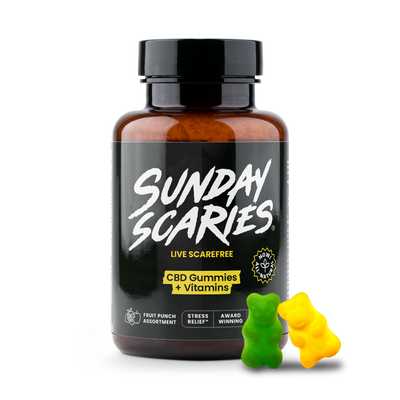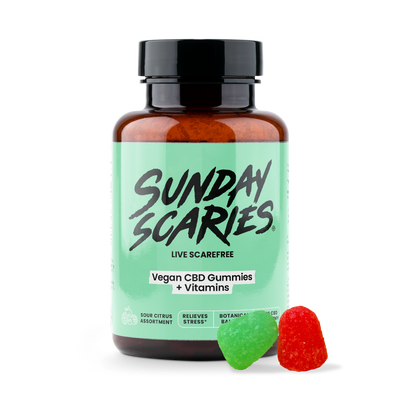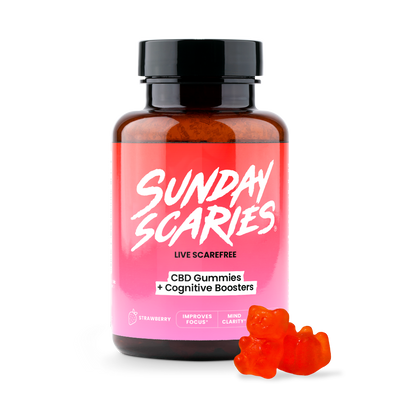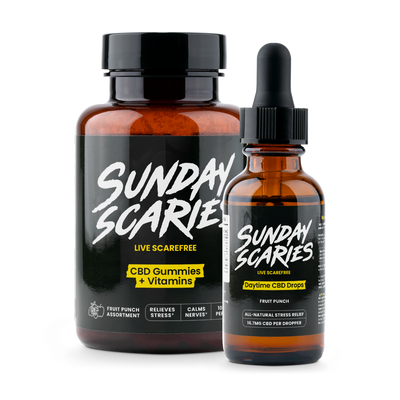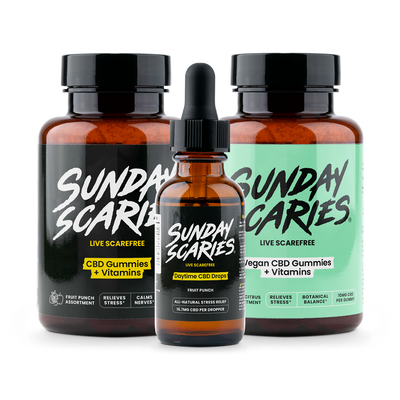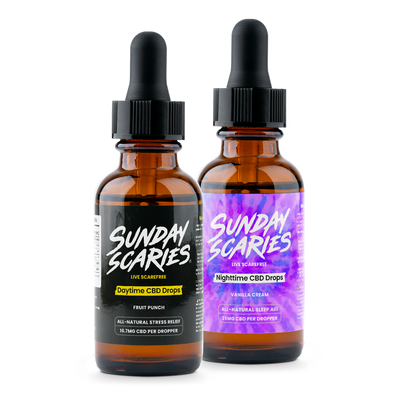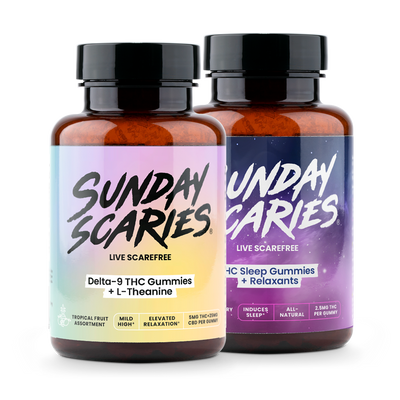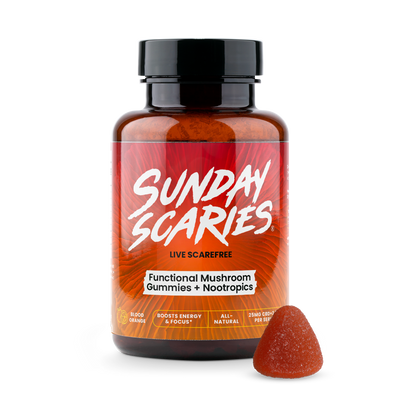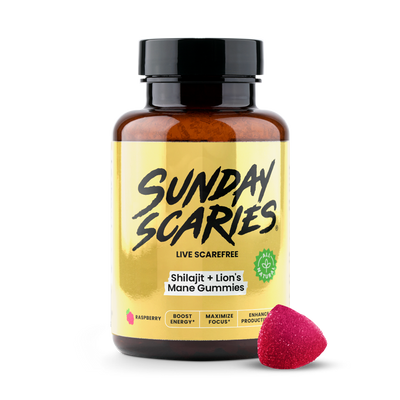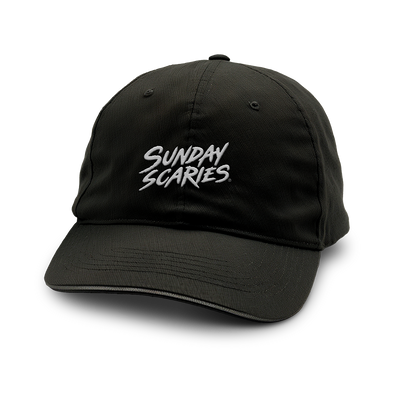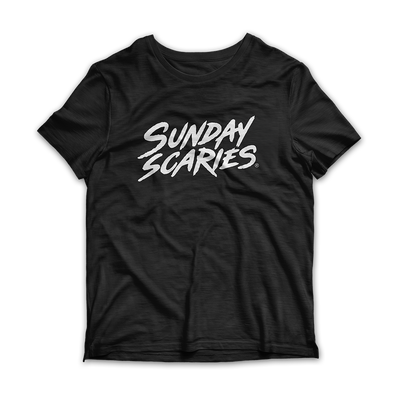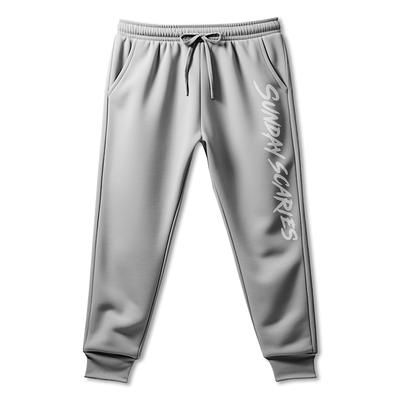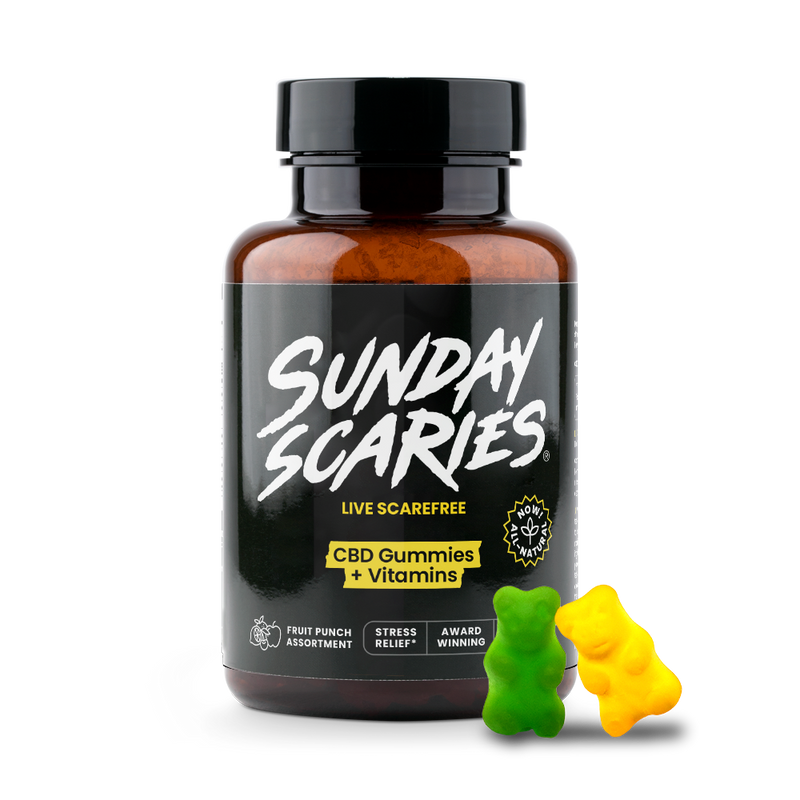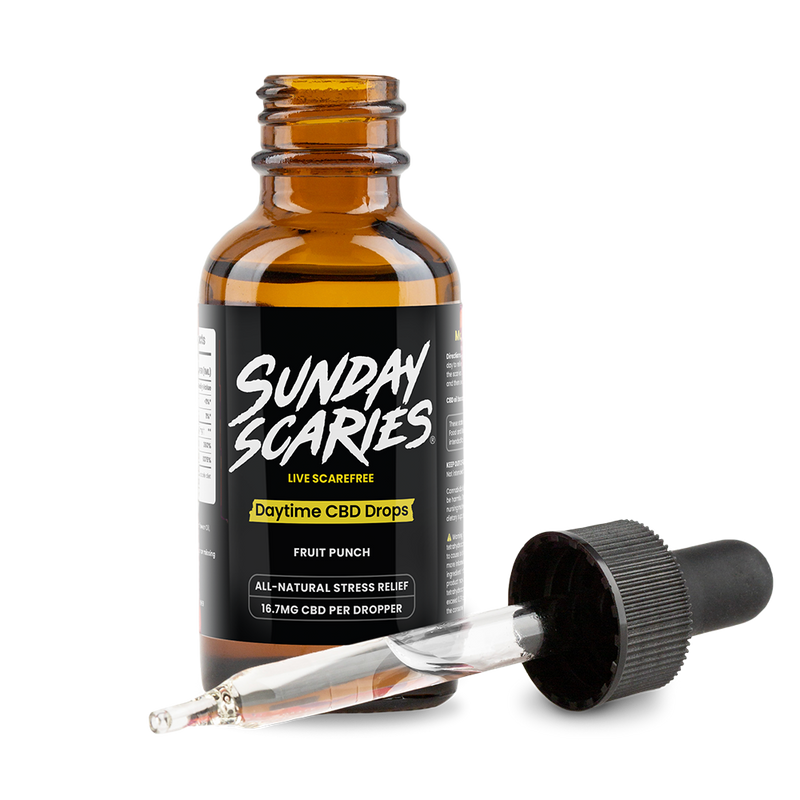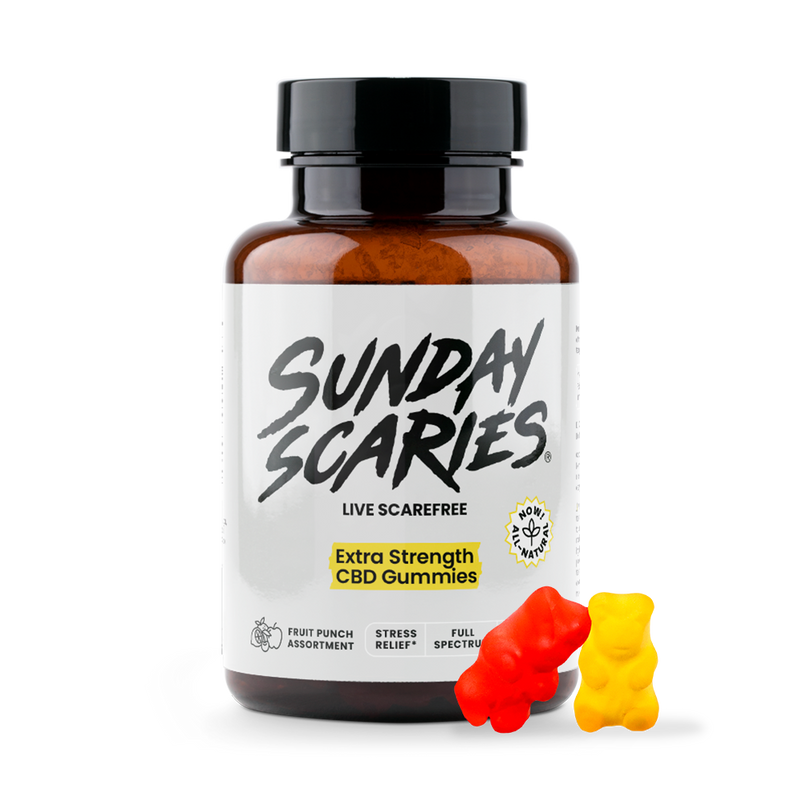
What is CBD?
CBD, short for cannabidiol, is a natural compound found in the hemp and cannabis plants. It is non-intoxicating, meaning it won’t get you high, and is widely used for its potential wellness benefits like promoting relaxation, supporting sleep, and easing everyday stress. CBD works by interacting with your body’s endocannabinoid system, which helps regulate balance in functions like mood, sleep, and pain response.
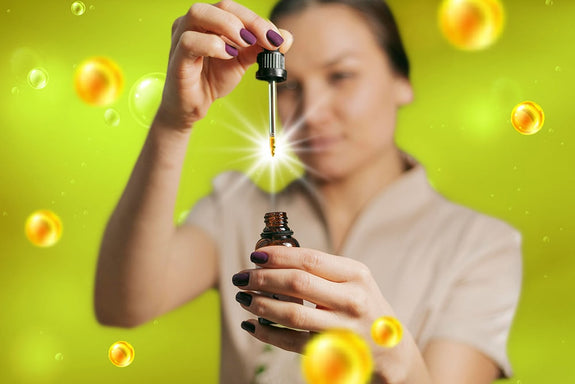
Known for its connection to the cannabis plant, CBD, or cannabidiol, has often been misunderstood due to its controversial origins.
However, with a wave of research and anecdotal evidence highlighting its potential benefits, the narrative around CBD is rapidly changing.
From anxiety and depression relief to pain management and potential applications in neurological disorders, CBD is making a name for itself in the health and wellness landscape as a potential form of alternative medicine.
But what exactly is CBD? How is it derived, and what are the potential benefits and risks associated with its use?
Key Takeaways
- CBD is a non-psychoactive compound sourced from either hemp or marijuana with potential health benefits, legally distinguished from THC due to its lack of intoxicating effects.
- Potential therapeutic applications of CBD include anxiety and depression relief, pain management, and treatment of neurological disorders, though more clinical research is needed to fully confirm its efficacy and safety.
- Various forms of CBD products are available, including Full-Spectrum, Broad-Spectrum, and Isolate, with modes of consumption impacting onset and duration of effects; appropriate dosing depends heavily on individual factors and requires careful adjustment.
Understanding CBD: Origins and Composition

The Definition of CBD
CBD, also known as Cannabidiol, is a natural compound that comes from the Cannabis Sativa plant. It is one of over 100 cannabinoids found in the plant. Unlike THC (tetrahydrocannabinol), another major active cannabinoid in cannabis, CBD does not induce a euphoric state, making it an attractive option for those seeking potential therapeutic benefits without the “high” associated with marijuana use.
Cannabis Sativa Plant
The Cannabis Sativa plant, native to Eastern Asia, is a remarkable herbaceous plant that has been cultivated globally for its diverse benefits. It is a member of the Cannabaceae family and is known for yielding both hemp and marijuana. It is the genus of the plant.
The plant is rich in cannabinoids, chemical compounds that interact with our bodies’ endocannabinoid system. This system is a key regulator of diverse physiological processes such as mood, pain sensation, and immune response.
CBD is one such cannabinoid found in abundance in the Cannabis Sativa plant, and it has been studied for its potential health benefits, such as reducing anxiety, alleviating pain, and improving sleep.
With CBD now being legal in many places, more human studies are being performed and more consumers can now access the various benefits of these products.
Cannabidiol (CBD) vs. Tetrahydrocannabinol (THC)
CBD and THC are two primary active compounds or cannabinoids found in cannabis. However, they are distinguished by their effects on the body.
While THC is known for its psychoactive properties, which induce a “high” feeling, CBD does not bind with the same affinity to cannabinoid receptors in the brain and hence does not induce psychoactive effects.
This difference makes CBD more suitable for potential therapeutic purposes, including pain relief, anxiety reduction, and improved sleep.
Notably, CBD’s interaction with the endocannabinoid system is complex and continues to be researched to further comprehend its potential therapeutic effects.
Extraction Methods
The quality and purity of CBD are significantly influenced by the extraction methods employed. The primary extraction methods include CO2 extraction, ethanol extraction, and olive oil extraction.
CO2 extraction, known for its precision, involves the use of pressurized carbon dioxide to extract CBD from the cannabis plant. This method yields high-quality and pure CBD oil but requires sophisticated equipment and expertise, making it a more costly option.
The ethanol extraction process involves the use of the Soxhlet technique, facilitating a rapid extraction with minimal residue, making it suitable for smaller batches of cannabis oil.
The olive oil extraction method combines olive oil with CBD-rich plant material, followed by heating the mixture to extract the CBD into the oil.
The choice of extraction method can significantly impact the quality of CBD products, influencing their potential benefits and safety.
At Sunday Scaries, we use Cryogenic Ethanol Extraction, which is the best form of extraction based on this Comparative Study in the National Library of Medicine which states "efficient cannabis biomass extraction can increase yield while reducing costs and minimizing waste. Cold ethanol extraction was evaluated to maximize yield and concentrations of cannabinoids and terpenes at different temperatures."
Health Benefits and Potential Applications
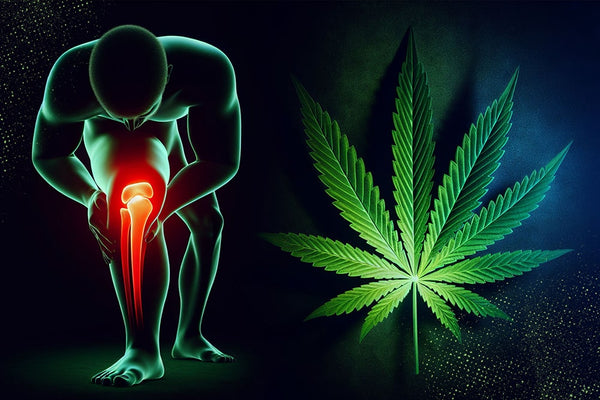
Potential health benefits of Cannabidiol, or CBD, under investigation include relief from anxiety and depression, pain management, and treatment for neurological disorders. By interacting with serotonin receptors in the brain, CBD oil may help alleviate symptoms of anxiety and depression. In fact, the health benefits of CBD are becoming more widely recognized and researched.
The plant has been relatively unstudied since the Marihuana Tax Act of 1937 which bastardized cannabis and prevented it from being researched in government labs and universities. Since the 2018 Farm Bill legitimized hemp and since the recreational and medical marijuana legal statuses have changed in many states, more research and clinical trials are now underway.
Anxiety and Depression Relief
Mental health conditions, such as anxiety and depression, can have a debilitating impact on an individual’s life.
CBD oil has shown promising potential in alleviating symptoms of these conditions by interacting with serotonin receptors in the brain. According to this study called Cannabidiol in Anxiety and Sleep: A Large Case Series, "Anxiety scores decreased within the first month in 57 patients (79.2%) and remained decreased during the study duration."
Empirical research indicates that CBD may be beneficial in reducing anxiety and enhancing depressive symptoms. However, when selecting a CBD product for anxiety relief, it is important to carefully consider the following factors:
- Method of consumption
- Desired effects
- Dosage
- Quality of the product
Taking these factors into account will help ensure that you choose the most suitable CBD product for your needs.
It is recommended to consult with a healthcare professional, especially if you have underlying health conditions. This is because CBD may interact with other medications and CBD products in general lack preclinical evidence and have not undergone human trials in a scientific setting.
Chronic Pain Management
Pain is a universal experience and managing it effectively can significantly improve quality of life. CBD has shown potential in this regard, by reducing swelling and interacting with neurotransmitters to alleviate body aches.
Research has indicated that specific CBD dosages have been associated with notable enhancements in pain and physical function, particularly in muscle tightness.
According to a study on chronic pain called Cannabidiol as a Treatment for Chronic Pain: A Survey of Patients’ Perspectives and Attitudes "overall, participants report that CBD is a good treatment option [“Agree” (20.9%), “Strongly Agree” (50.2%)]"
When surveyed about what health issues CBD oil has helped with, the most frequently reported conditions were back pain (67.3%), nerve pain (46.7%), and neck pain (44.7%).
Finally, the study revealed that effects of CBD on serious pain conditions "seem to be context specific, with no effect on pain shown in patients with Crohn’s disease, and pain-relieving effects reported for pain associated with Multiple Sclerosis, spinal cord injury, brachial plexus injury, limp amputation, peripheral neuropathy, and fibromyalgia."
It is essential to recognize that current research to definitively support the use of CBD for pain management is limited, necessitating more high-quality randomized clinical trials to verify CBD’s efficacy in pain treatment. So if you're looking for a cure all for cancer pain, joint pain or rheumatoid arthritis, cannabidiol extracts sold online may not be effective and you should consult a doctor prior to using them.
Neurological Disorders
In terms of neurological disorders, CBD, specifically through the prescription drug Epidiolex, has received approval for the treatment of specific types of epilepsy and tuberous sclerosis, showcasing its potential in managing neurological conditions.
Epidiolex is FDA approved after its parent company, GW Pharmaceuticals, conducted a controlled trial on the drug with numerous human studies.
CBD is also being studied for the potential protective effects against neurological disorders like Parkinson’s disease, Alzheimer’s disease, and multiple sclerosis. However, the current state of research on CBD’s use in neurological disorders is still in the infancy stages. While studies indicate potential beneficial effects, additional clinical studies are required to confirm these benefits fully.
Prescription medications like Epidiolex can serve as a safe and effective treatment in severe medical conditions, while over-the-counter CBD products like Sunday Scaries are better suited for stress relief, sleep aid and minor health issues.
FDA Warning: The statements regarding these products have not been evaluated by the Food and Drug Administration. These products are not intended to diagnose, treat, cure, or prevent any disease. Always consult with a healthcare professional before starting any new dietary supplement, including CBD products. Information and statements made are for educational purposes and are not intended to replace the advice of your healthcare provider.
CBD Safety and Side Effects

Despite its general safety, CBD is not devoid of potential adverse effects. Some users may experience dry mouth, drowsiness, and low blood pressure. Furthermore, CBD can interact with other medications, potentially altering their efficacy and side effects.
Special precautions should be taken when using CBD, especially by pregnant and breastfeeding women, individuals with Parkinson’s disease, and those on certain medications.
Common Side Effects
While CBD is generally well-tolerated, some users may experience common side effects such as dry mouth, drowsiness, and low blood pressure. CBD can induce drowsiness through its sedative properties, and it can lead to a decrease in blood pressure by reducing resting blood pressure and the blood pressure response to stress, relaxing blood vessels, and lowering cortisol levels in the body.
Drug Interactions
CBD could potentially interact with certain medications, including anticonvulsants, sedative drugs, and antihistamines. It does so by inhibiting or inducing enzymes involved in drug metabolism, such as the CYP450 system. These interactions can influence the effectiveness and side effects of the medications, making it crucial to consult with a healthcare professional before starting CBD.
The manner in which CBD is consumed can also influence its interaction with medications, highlighting the importance of considering the method of consumption when assessing potential drug interactions.
Special Precautions
Certain individuals should exercise caution when considering the use of CBD. Pregnant and breastfeeding women are advised against consuming CBD. Individuals with Parkinson’s disease should seek guidance from a healthcare professional before starting CBD treatment, as it’s advisable to start with a low dose and adjust gradually based on individual needs.
Similarly, individuals using certain medications should be cautious when using CBD due to potential interactions that could impact the efficacy and side effects of their medication.
Overall, taking CBD is very low risk, since it is generally regarded as safe with no signs of potential substance abuse. Also, you cannot lethally overdose on CBD.
Types of CBD Products and Consumption Methods
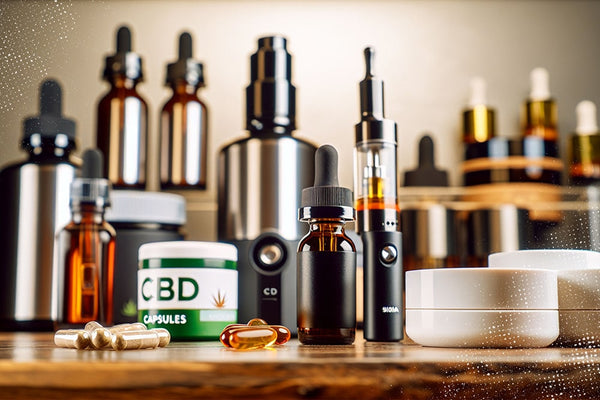
Due to the growing popularity of CBD, there is a notable increase in the variety of CBD products and consumption methods in the market. CBD products come in various forms, including full-spectrum, broad-spectrum, and isolate, each offering unique benefits.
Furthermore, these products can be consumed in several ways, such as oils, capsules, topicals, and vapes, each presenting distinct onset times and effects.
Full Spectrum, Broad Spectrum, and Isolate
CBD products come in three main types:
- Full-spectrum CBD contains all cannabinoids present in the cannabis plant, including up to 0.3% THC, the psychoactive compound.
- Broad-spectrum CBD excludes specific cannabinoids like THC.
- Isolate consists solely of CBD without any other cannabinoids.
The choice between full-spectrum, broad-spectrum, and isolate depends on personal preference, desired effects, and legal considerations.
Although, using full-spectrum CBD products allows for the inclusion of the 'entourage effect', which states that CBD is most effective when all cannabinoids interact symbiotically with each other.
For optimal use of cannabidiol oil we suggest purchasing hemp products that are full-spectrum.
Oils, Capsules, Topicals, and Vapes
CBD can be consumed in several ways, each with its unique properties.
CBD oil, known for its potential to offer pain relief and relaxation without inducing a psychoactive effect, can be taken orally and is absorbed quickly in the bloodstream.
CBD capsules provide a convenient way to consume CBD, though they typically have a slower onset of action compared to cbd oils or vapes.
CBD gummies offer an approachable way to take CBD, and offer a significant reduction in the potential stigma associated with CBD use.
Topical CBD-infused products such as oils, lotions, and creams can be particularly effective in treating localized skin conditions.
Vaping CBD offers rapid absorption into the bloodstream, with effects manifesting within a few minutes and lasting for several hours. Although, vaping is considered one of the more harmful methods of CBD consumption.
What Are CBD Gummies?
CBD gummies are edible candies infused with cannabidiol (CBD) oil, known for their ease of use, convenience, and potential benefits in promoting relaxation, pain relief, and improved sleep without the psychoactive effects of THC.
It's important to note that CBD gummies can also be marijuana-derived. Since these terms are often conflated or misunderstood, we summarized them below in an easy-to-understand way:
- Cannabis: The general term for the plant genus that includes both hemp and marijuana.
- Hemp: A low-THC variety of cannabis cultivated for industrial purposes.
- Marijuana: A high-THC variety of cannabis cultivated for psychoactive and medicinal effects.
To make things even more complicated, there are "hemp gummies" on the market which are made using hemp seed oil, along with "hemp CBD gummies" which are made using CBD oil.
Since most CBD gummies on the market are hemp-derived, and for the sake of simplicity, we'll be discussing hemp CBD gummies in this article.
2. The Origins of CBD Gummies
Early Discovery of CBD
CBD, a compound found in the cannabis plant, was first isolated in 1940. Its non-psychoactive properties were later clarified in the 1960s by Dr. Raphael Mechoulam, sparking interest in its therapeutic potential.
Rise of CBD Oil
The 2018 Farm Bill in the U.S. legalized hemp-derived products with less than 0.3% THC, leading to a surge in CBD oil's popularity for its health benefits without the psychoactive effects.
Development of CBD Edibles
Following the success of CBD oil, manufacturers began creating CBD-infused edibles, offering a convenient and tasty alternative to oil. Edibles gained traction, especially in states where cannabis was legal.
Introduction of CBD Gummies
CBD gummies, introduced in the early 2010s, quickly became popular due to their ease of use, discreet consumption, and variety of flavors. The introduction of CBD gummies provided a solution that combined the health benefits of CBD with the familiar and enjoyable experience of eating candy.
Market Growth
As demand for CBD gummies grew, manufacturers innovated with different CBD concentrations, flavors, and added health ingredients. Emphasis on quality and transparency with third-party lab testing became standard.
3. How CBD Gummies Work
CBD gummies work by interacting with the body's endocannabinoid system (ECS), a complex network of receptors responsible for maintaining homeostasis. When consumed, the CBD in the gummies binds to these receptors, potentially promoting balance and well-being throughout the body.
We have tons of resources on the details of how CBD gummies work:
4. Benefits of CBD Gummies
CBD gummies offer a range of potential health benefits, including:
- Relaxation and Stress Relief: CBD is known for its calming effects, which can help reduce stress levels. It is also being studied for full-blown anxiety relief.
- Pain Management: Many users report relief from body aches and inflammation after consuming CBD gummies.
- Improved Sleep: CBD may help regulate sleep patterns, making it easier to fall asleep and stay asleep.
- Enhanced Focus and Clarity: Some users find that CBD helps improve concentration and mental clarity.
- Support for Overall Wellness: CBD's interaction with the ECS may promote overall health and balance, much like a daily vitamin.
5. Types of CBD Gummies
CBD gummies come in various types, including:
- Full-Spectrum CBD Gummies: Contain all the compounds found in the hemp plant, including trace amounts of THC.
- Broad-Spectrum CBD Gummies: Contain multiple cannabinoids and terpenes but no THC.
- CBD Isolate Gummies: Contain only pure CBD, with no other cannabinoids or terpenes.
At Sunday Scaries, we use Full-Spectrum CBD in all of our products except our CBD dog treats.
Why Full-Spectrum CBD is the Best Choice for CBD Gummies
The Entourage Effect
One of the primary reasons full-spectrum CBD oil is considered the best choice for CBD products is the "entourage effect." This phenomenon occurs when all the compounds in the cannabis plant, including cannabinoids, terpenes, and flavonoids, work together synergistically to enhance the overall therapeutic effects.
Full-spectrum CBD oil contains a wide range of these compounds, including trace amounts of THC (less than 0.3%), which contribute to a more potent and effective product compared to CBD isolates or broad-spectrum oils.
Comprehensive Benefits
Full-spectrum CBD oil offers a broader range of potential health benefits due to the presence of multiple cannabinoids and terpenes. These compounds can interact with the body's endocannabinoid system (ECS) in various ways, potentially providing more comprehensive relief from conditions such as stress, brain fog and sleep problems.
Natural and Less Processed
Full-spectrum CBD oil is typically less processed than other types of CBD extracts. This means it retains more of the natural compounds found in the hemp plant, providing a more holistic and authentic product. The minimal processing also helps preserve the integrity and potency of the CBD oil, ensuring users receive the full therapeutic potential of the plant.
Enhanced Therapeutic Experience
Users of full-spectrum CBD oil often report a more effective and enhanced therapeutic experience. The presence of multiple cannabinoids and terpenes not only boosts the overall efficacy but also helps mitigate potential side effects that might occur with CBD isolates.
For instance, the combination of CBD with small amounts of THC is being researched for enhancing pain relief and relaxation without causing significant psychoactive effects.
6. How to Choose High-Quality CBD Gummies
When selecting CBD gummies, it's essential to consider several factors to ensure you're getting a high-quality product:
- Source of CBD: Look for gummies made from organically grown hemp on domestic farms located in Colorado or Kentucky.
- Raw Material Refinement: Ensure the raw materials are broken down into isolate and distillate at pharmaceutical-grade ISO 9001 certified, cGMP certified and FDA registered labs.
- Final Product Third-Party Testing: Ensure the product has been tested by an independent lab for potency and purity.
- Ingredients: Check for top-quality ingredients and go as natural as you can, while maintaining delicious taste and texture.
- CBD Concentration: Choose gummies with a CBD concentration that matches your needs and experience level. For beginners, start with 10mg per gummy.
- Brand Reputation: Opt for reputable brands with positive customer reviews and a transparent manufacturing process.
- Satisfaction Guarantee: Choose brands that stand behind their product lines and offer a lifetime 100% money-back guarantee with no questions asked.
7. How to Use CBD Gummies
Using CBD gummies is straightforward:
- Determine the Right Dosage: Start with a low dose (10-20 mg) and gradually increase until you achieve the desired effects.
- Consume the Gummies: Simply eat the gummies as you would any other candy. Pro Tip - chew the gummies for 20 seconds and let them sit under your tongue for 10 seconds for faster absorption in the blood stream.
- Monitor the Effects: Pay attention to how your body responds and adjust the dosage if necessary. It may sound nerdy, but write a journal on the onset time, duration and effects!
- How to Take CBD Gummies: Your Essential Dosage Guide
- How Long Does it Take for CBD Gummies to Work?: A Beginner's Guide
8. Potential Side Effects and Risks
While CBD gummies are generally considered safe, some potential side effects and risks include:
Common Side Effects
- Dry Mouth: CBD can reduce saliva production, leading to a dry sensation in the mouth.
- Drowsiness: Higher doses of CBD may cause drowsiness and sedation.
- Digestive Issues: Some users might experience nausea, diarrhea, or changes in appetite.
- Changes in Weight: CBD can affect appetite, potentially leading to weight gain or loss.
- Fatigue: Some individuals may feel unusually tired or lethargic after consuming CBD.
Less Common Side Effects
- Dizziness: Some users might feel lightheaded or dizzy, especially at higher doses.
- Low Blood Pressure: CBD may cause a temporary drop in blood pressure, leading to dizziness or lightheadedness.
- Mood Changes: While CBD is generally known for its calming effects, some people might experience mood swings or irritability.
Risks and Considerations
- Interaction with Medications: CBD can interact with certain medications, potentially affecting their efficacy or causing adverse reactions. It is crucial to consult with a healthcare provider if you are on prescription drugs.
- Liver Enzyme Alterations: High doses of CBD might affect liver enzymes, which could impact liver function over time.
- Quality and Purity: Not all CBD products are created equal. Poor-quality products might contain contaminants such as pesticides, heavy metals, or THC levels higher than advertised.
- Legal Issues: While CBD is legal in many places, the regulations vary by region. It's essential to ensure that the CBD gummies you purchase comply with local laws.
- Pregnancy and Breastfeeding: The effects of CBD on pregnant or breastfeeding women are not well-studied, so it is generally recommended to avoid CBD during these periods. Please consult with a doctor if you are pregnant or breastfeeding before using CBD gummies.
9. Unique Uses of CBD Gummies
In addition to their common benefits, CBD gummies can be used in several unique ways:
- Sunday Scaries Remedy: CBD gummies can help calm the mind, eliminate doubt and take away the Sunday Scaries.
- Post-Concert Depression Companion: CBD gummies may help you cope with the mood swings and negativity that often times arise when dealing with Post-Concert Depression.
- Workout Recovery: CBD gummies can aid in post-workout recovery by reducing inflammation and muscle soreness.
- Headache Reducer: Got some tension from work? CBD for migraines is trending in new research for its ability to help with swelling.
- Golfing Antidote: Ever dealt with pre-tee jitters or the yips while putting? CBD for golf can help improve focus and eliminate pre-round stress.
- Creative Focus: Some users find that CBD gummies enhance their creativity and focus during artistic activities.
- Travel Companion: CBD gummies can help manage travel-related anxiety and promote relaxation on long trips.
- Creative Focus and Artistic Activities: Exploring how CBD gummies can enhance creativity and focus, providing a unique perspective not commonly found in other articles.
- Pet-Friendly Options: There are CBD gummies formulated specifically for pets to help with separation anxiety and mobility issues.
10. Different Kinds of CBD Gummy Products
There are a ton of CBD gummy product options, check them out below!
- Extra Strength CBD Gummies
- Vegan CBD Gummies
- CBD Gummies for Focus and Concentration
- CBD Candy
- Sleep Aid CBD Gummies
- THC-Free CBD Gummies
- CBD Gummies for Immune Support
11. CBD Gummies vs. Other CBD Products
Comparing CBD gummies to other CBD products can help you determine which option is best for you:
- CBD Oil: CBD oil tinctures, including CBD sleep oil, offer faster absorption but may have a strong, earthy taste.
- CBD Capsules: Provide precise dosing but lack the enjoyable experience of gummies.
- CBD Topicals: Target specific areas for pain relief but don't offer systemic benefits.
- CBD Vapes: Provide quick effects but may not be suitable for all users due to potential respiratory risks.
12. The Legal Status of CBD Gummies
The legal status of CBD gummies varies by country and region. In the United States, CBD products derived from hemp with less than 0.3% THC are legal under federal law, but state laws may differ. It's essential to check your local regulations before purchasing or consuming CBD gummies.
13. Customer Reviews and Experiences
Real-life experiences and customer reviews provide valuable insights into the effectiveness of CBD gummies. Many users report positive outcomes, such as reduced anxiety, better sleep, and pain relief. However, individual results can vary, and it's important to find the right product and dosage for your needs.
Check out this quote from Allure about Sunday Scaries CBD Gummies:
"Sunday Scaries helped my anxiety more than I could ever imagine. Sundays are less scary, and I am more calm..."
CBD Dosing Guidelines
The variability in individual response makes determining the appropriate dosage of CBD a challenging task.
The recommended starting dosage may range from 5mg to 50mg per day, but it’s advisable to start with a lower dose and progressively increase it until the desired effects are attained.
Factors to consider when determining the suitable CBD dosage include:
- The concentration of CBD in the product
- Body weight and height
- Existing medical conditions
- Tolerance level
- Desired effects
- The type of CBD extract
- The mode of administration
It’s crucial to monitor the effects of CBD and adjust the dosage based on individual response, under the guidance of a healthcare provider.
Legal Status and Regulation

The complex legal landscape of CBD varies between countries and even within states. The 2018 Farm Bill legalized hemp-derived CBD on a federal level in the United States, but rapidly changing state laws with products that contain high doses of other cannabinoids may still restrict its use.
Furthermore, the FDA does not regulate CBD supplements, raising concerns about the quality control of CBD products.
2018 Farm Bill and State Laws
The 2018 Farm Bill, also known as the Agriculture Improvement Act, had a significant impact on the legal status of CBD in the United States.
The law legalized the cultivation, processing, marketing, and sale of hemp and its derivatives, including CBD.
Some states deem the use or possession of any cannabis-derived product, including medical marijuana, unlawful, while others have sanctioned CBD with specific limitations.
FDA Regulation and Quality Control
The FDA does not regulate CBD like traditional medications, which raises concerns about the safety and purity of dietary supplements, such as CBD oil. This lack of regulation allows unregulated and often mislabeled products to enter the market, posing potential risks to consumers.
In response to these concerns, the FDA has determined that a new regulatory pathway is necessary to establish safeguards and oversight for managing and mitigating risks associated with CBD products.
Tips for Choosing and Using CBD Products
Ensuring the quality and safety of CBD products is vital when choosing and using them. Here are some tips to keep in mind:
- Look for products that have undergone third-party testing and come with a certificate of analysis.
- Be wary of misleading claims and false advertising.
- Start with low doses and gradually increase as needed under the guidance of a healthcare provider.
Third-Party Testing and Certificates of Analysis
Third-party testing is instrumental in guaranteeing the quality and safety of CBD products. This testing involves an independent, reputable organization conducting tests to verify the accuracy of the product’s label, ensuring that the product contains the specified ingredients as stated.
A certificate of analysis typically displays information regarding the potency of the CBD, the presence of other cannabinoids, and any potential contaminants that could impact the safety and quality of the product.
Avoiding Misleading Claims
Caution is advised when dealing with companies making disease claims for CBD products, as these may be misleading and unsupported by clinical research. Consumers can discern misinformation or exaggeration in CBD product advertisements by:
- Critically assessing the claims presented
- Exercising caution with products that make specific health promises
- Being skeptical of language that exceeds current scientific evidence
Misleading marketing can erode consumer confidence in the CBD industry and regulatory authorities responsible for safeguarding public health.
Starting with Low Doses and Monitoring Effects
When initiating CBD use, it is recommended to start with a low dose and observe its effects. This allows individuals to evaluate their body’s reaction and adjust the dosage to attain the desired outcome. The recommended initial dosage may range from 5 to 50 mg per day, with individuals advised to incrementally increase the CBD dosage by 5 mg after a week until the desired effects are achieved.
It’s crucial to monitor the effects of CBD and adjust the dosage based on individual response, under the guidance of a healthcare provider.
Summary
In conclusion, CBD, a non-psychoactive compound derived from cannabis, offers potential health benefits such as anxiety and depression relief, pain management, and potential applications in neurological disorders.
However, its usage should be approached with caution until the FDA approves CBD as a dietary supplement and due to potential side effects and interactions with other medications.
The legal landscape and regulation of CBD can be complex, varying between countries and even within states.
When choosing and using CBD products, it’s crucial to ensure their quality and safety, starting with low doses and gradually increasing as needed under the guidance of a healthcare provider.
Frequently Asked Questions
Is CBD the same as Marijuana?
CBD is not the same as marijuana, as it does not contain THC, the psychoactive ingredient in marijuana that causes a high. It interacts with different receptors and does not produce the same psychoactive effects.
Is CBD used as a drug?
CBD is used as a prescription drug for seizures disorder (epilepsy), but there is no strong scientific evidence to support its use for other conditions.
Does CBD make you feel spacey?
No, CBD oil does not make you feel "spacey" as it is non-psychoactive and does not produce the high associated with THC. However, some users may experience slight differences in how they feel after consumption, but this can vary from person to person.
Is CBD Legal in all states?
Yes, CBD is federally legal in all 50 states after the 2018 Farm Bill was signed into law.
What's the Best Way to Consume CBD?
The best way to consume CBD is either in gummy or oil form. To find the ideal choice for your wellness routine, check out our resource: CBD Oil vs. Gummies
Are CBD gummies legal to purchase and consume?
Yes, CBD gummies derived from hemp with less than 0.3% THC are generally legal federally, but it's important to check your state laws as they can vary. Always verify the legality in your state before purchasing and consuming CBD gummies.
Will taking CBD gummies result in a 'high' sensation?
No, CBD gummies will not make you feel high because they do not contain enough psychoactive properties of THC. You may feel some "high" effects if the product is full-spectrum and you over-consume.
Can CBD gummies interact with other medications I'm taking?
Yes, CBD can interact with certain medications, so it's important to consult with a healthcare provider before combining it with other medications. Always seek professional advice for your specific situation.
How do I choose high-quality CBD gummies?
When choosing high-quality CBD gummies, look for clear labeling of CBD content, third-party testing certification, and positive customer reviews. Hemp-derived CBD products are more likely to be within legal THC limits.
Could CBD gummies cause me to fail a drug test?
Yes, CBD gummies could potentially cause you to fail a drug test due to trace amounts of THC in some products. To minimize this risk, choose gummies with clear labeling and no THC.

